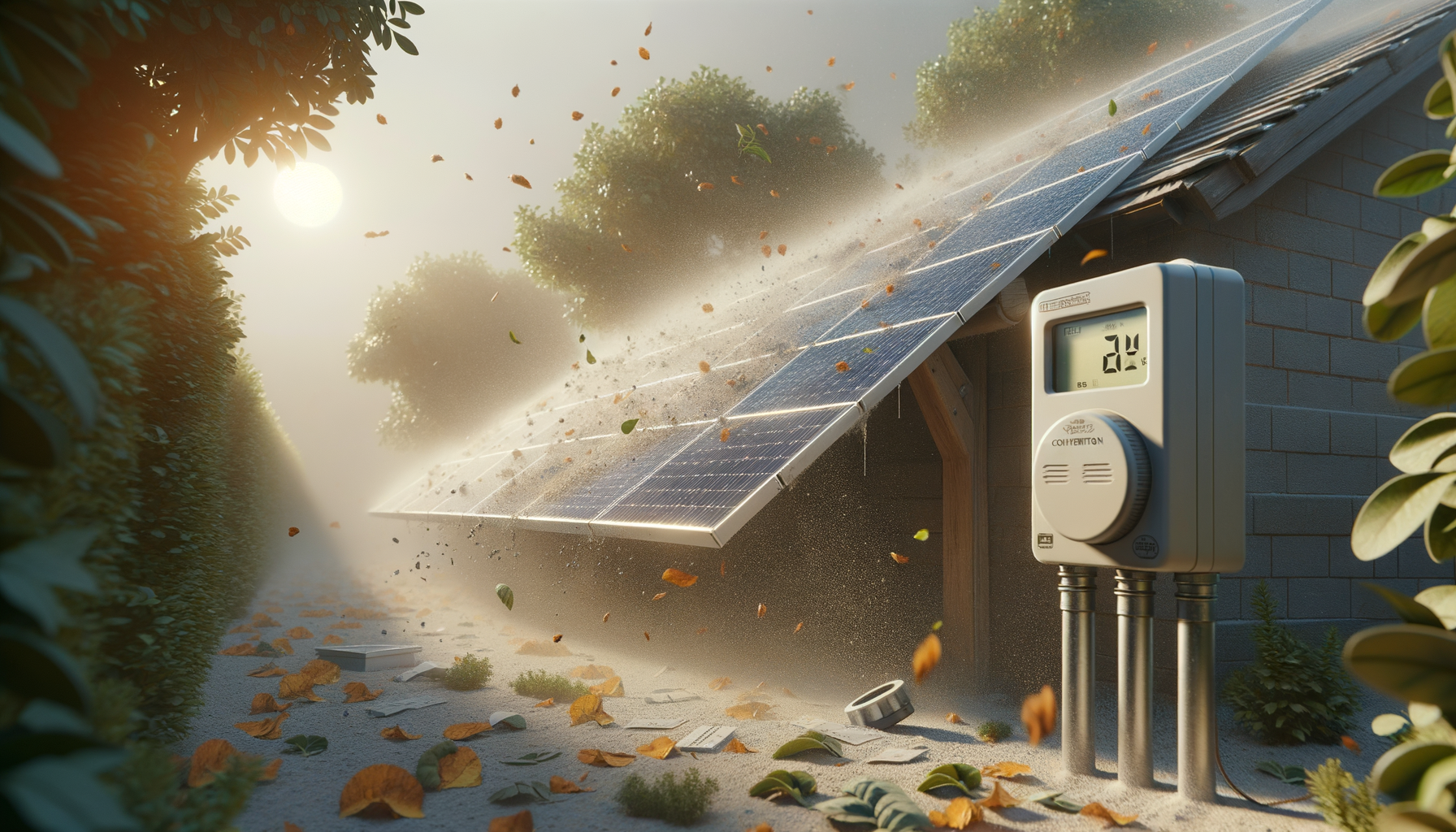Mistakes That Keep Your Electricity Bill High Even With Solar Panels
Introduction to Solar Energy Efficiency Solar energy has become a popular choice for homeowners looking to reduce their carbon footprint and lower electricity costs. However, many find that their electricity bills remain unexpectedly high even after installing solar panels. This article explores common mistakes that can hinder the efficiency of solar energy systems and provides

Introduction to Solar Energy Efficiency
Solar energy has become a popular choice for homeowners looking to reduce their carbon footprint and lower electricity costs. However, many find that their electricity bills remain unexpectedly high even after installing solar panels. This article explores common mistakes that can hinder the efficiency of solar energy systems and provides insights into optimizing their performance. Understanding these pitfalls is crucial for anyone investing in solar technology to ensure they reap the full benefits of renewable energy.
Improper Solar Panel Placement
One of the most common mistakes affecting solar energy efficiency is the improper placement of solar panels. The orientation and angle of the panels are critical factors that determine how much sunlight they capture. Ideally, panels should be positioned to receive maximum sunlight throughout the day. For most locations in the northern hemisphere, a south-facing orientation is optimal. Additionally, the tilt angle of the panels should be adjusted according to the latitude of the location to maximize exposure.
Shading is another significant issue. Even partial shading from trees, buildings, or other obstructions can dramatically reduce the output of solar panels. It’s essential to conduct a thorough site assessment to identify and mitigate potential shading issues. Regular maintenance, such as trimming trees, can help maintain optimal sunlight exposure.
In summary, ensuring proper placement and minimizing shading are fundamental steps in maximizing solar panel efficiency. These considerations can significantly impact the overall performance and savings achieved through solar energy.
Inadequate System Sizing
Another factor that can lead to high electricity bills is installing a solar system that is inadequately sized for the household’s energy needs. It’s crucial to conduct an accurate assessment of energy consumption patterns before choosing a system size. This involves analyzing past electricity bills to understand peak usage times and total energy requirements.
Undersized systems may not generate enough electricity to cover the household’s needs, leading to reliance on grid power and higher bills. Conversely, an oversized system can result in unnecessary expenditure and wasted energy. Working with a reputable solar installer who can accurately assess and recommend the appropriate system size is essential.
By matching the system size to the household’s energy demands, homeowners can maximize the efficiency and cost-effectiveness of their solar investment.
Ignoring Energy Efficiency Measures
While solar panels can significantly reduce reliance on grid electricity, their effectiveness is enhanced when combined with energy efficiency measures. Ignoring these measures can lead to continued high electricity bills. Simple steps such as upgrading to energy-efficient appliances, improving insulation, and using LED lighting can reduce overall energy consumption.
Conducting an energy audit can identify areas where improvements can be made. This audit can highlight energy-wasting habits and suggest practical changes to enhance efficiency. Implementing these measures reduces the household’s energy demand, allowing the solar system to cover a more substantial portion of the energy needs.
Incorporating energy efficiency into the overall strategy ensures that solar panels operate at their highest potential, providing greater savings and environmental benefits.
Lack of Regular Maintenance
Regular maintenance is crucial to ensure solar panels operate efficiently. Dust, debris, and dirt accumulation on the panels can significantly reduce their energy output. Routine cleaning is necessary to maintain optimal performance. Additionally, inspecting the system for any signs of wear or damage is vital to prevent long-term issues that could affect efficiency.
Monitoring the system’s performance through available software or apps can alert homeowners to any drop in efficiency, allowing for timely intervention. Scheduling regular professional maintenance checks can also help identify and resolve potential problems before they become significant.
By prioritizing regular maintenance, homeowners can ensure their solar panels continue to perform efficiently, maximizing the return on their investment.
Conclusion: Maximizing Solar Energy Benefits
Maximizing the efficiency of solar panels requires attention to several factors, from proper placement and system sizing to regular maintenance and energy efficiency measures. By avoiding common mistakes, homeowners can ensure their solar systems operate at peak performance, leading to substantial savings on electricity bills and a reduced environmental impact.
Investing in solar energy is a significant step toward sustainability, but it requires ongoing attention and optimization to achieve the desired results. By understanding and addressing these common pitfalls, homeowners can fully harness the power of the sun and enjoy the benefits of renewable energy.